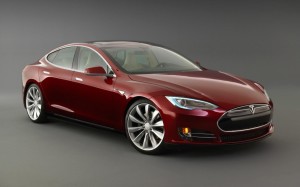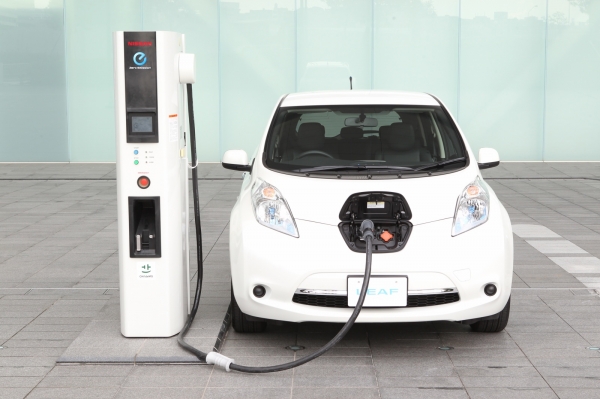The theme of this year’s legislative session seems to be transportation funding.
In his State of the State Address, Governor John Hickenlooper said, “Let’s examine all our options. Whether it’s new revenue, simplifying or replacing old tax streams, or a combination of both.”
One place to look for funding is to eliminate Colorado’s generous electric vehicle (EV) tax credit, which mostly goes to people earning six figures or more in the Denver Metro Area. This credit cost taxpayers $7.6 million in 2014 alone and is projected to remain at that level in 2017, according to 2016 Colorado Legislative Council staff estimates.
Do the math. That’s more than $30 million out of the state’s general fund from 2014 through 2017.
When Colorado’s $5000 per EV subsidy gets added to the even more generous $7,500 federal credit, it gives wealthy EV owners a $12,500 break on their tax bill.
Nice break, if you can afford it. Colorado taxpayers and roadways can’t. Who can? Electric vehicle owners themselves.
According to the Colorado Energy Office (CEO) in its Electric Vehicle and Infrastructure Readiness Plan, the key target market for electric vehicle purchases in Colorado is identified as “those earning more than $100,000 annually, having a bachelor’s degree or higher, owning two or more vehicles, and aged 38–78 years.” In other words, people who don’t need a subsidy to buy an EV, if they want one.
In contrast, the median household income in Colorado stood at just over $61,000 in 2014.
In the 2016 legislative session, lawmakers passed a bipartisan bill to reduce and streamline Colorado’s costly EV tax credit.
House Bill 16-1332 passed both houses with Governor Hickenlooper’s support. The bill sought to make it easier to get the EV tax credit. Instead of a complicated tax assessment calculation the following April 15 to claim the credit on income taxes, the new version allows new owners of plug-in and alternative fuel vehicles to receive the tax credit at the time of purchase. It is essentially an instant rebate, as dealers incorporate the credit as a discount before offering finance or leasing options.
The De![]() nver Business Journal estimates there are nearly 8,000 EVs in Colorado. With the easier-to-claim tax credit, EV proponents hope to add more plug-in vehicles to Colorado’s roads by 2022, when the incentives are set to sunset. After January 1, 2020, the credit will decrease to $4,000 per vehicle, and a year later will be further reduced to $2,500.
nver Business Journal estimates there are nearly 8,000 EVs in Colorado. With the easier-to-claim tax credit, EV proponents hope to add more plug-in vehicles to Colorado’s roads by 2022, when the incentives are set to sunset. After January 1, 2020, the credit will decrease to $4,000 per vehicle, and a year later will be further reduced to $2,500.
Between now and 2021, the CEO estimates new EV purchases will range from a few thousand low-end estimate to 50,000 on the high end. Assuming purchases are somewhere in the middle, it could cost Colorado taxpayers $50 million per year or more if wealthy folks opt to add an EV as the second or third vehicle in their family fleet.
That’s real money considering Governor Hickenlooper claims we need a tax increase to pay for our woefully underfunded roadways.
Proponents of these tax credits, including self-described environmentalists and auto dealers, heaped praise on the 2016 streamline effort, dubbing it “the best alternative fuel incentive in the country.”
But the state tax credit is really crony corporatism—and it’s not what’s best for Colorado taxpayers or roadways.
Even California has reformed its EV tax credit. When the state legislature realized that 94 percent of California’s $242 million tax credits went to EV purchasers not living in “economically disadvantaged” areas, lawmakers instituted income caps on tax credit recipients.
The California EV buyer profile – predominantly affluent, college-educated white males over age 45 – is similar to Colorado’s. In 2014, 93 percent of Colorado EV owners lived along the Front Range, resulting in nearly all of the state’s tax credits going to the wealthiest consumers in the state’s biggest counties—Jefferson, Boulder, Denver, Arapahoe, Douglas, and El Paso.
Ironically, saving the planet isn’t even a top concern for Colorado EV purchasers. A 2014 CEO study that found EV buyers value “high-performance and all-wheel drive capabilities” as more important than “environmental benefits of EVs.”
As the state struggles to fund roads and bridges, there is no justification for forcing rural or low-income Coloradans to subsidize wealthier Front Range residents who want to buy a second or third vehicle. These well-off buyers can still can claim the federal tax credit, but it’s time to end the Colorado EV subsidy.
This article originally appeared on CompleteColorado.com, January 16, 2017.








